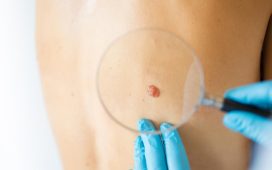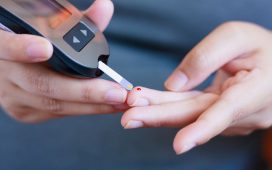Finding seen among women with pregnancies at high risk for recurrent early-onset hemolytic disease of the fetus and newborn
By Elana Gotkine HealthDay Reporter
WEDNESDAY, Aug. 7, 2024 (HealthDay News) — For pregnancies at high risk for early-onset severe hemolytic disease of the fetus and newborn (HDFN), intravenous nipocalimab can delay or prevent fetal anemia or intrauterine transfusions, according to a study published online Aug. 7 in the New England Journal of Medicine.
Kenneth J. Moise Jr., M.D., from Dell Medical School at the University of Texas at Austin, and colleagues examined treatment with intravenous nipocalimab (30 or 45 mg/kg body weight per week) administered from 14 to 35 weeks of gestation in participants with pregnancies at high risk for recurrent early-onset severe HDFN.
The researchers found that seven of 13 pregnancies in the study had live birth at 32 weeks of gestation or later without intrauterine transfusions (54 percent). There were no cases of fetal hydrops; in six cases (46 percent), participants did not receive any antenatal or neonatal transfusions. An intrauterine transfusion was received by six fetuses: five at 24 weeks of gestation or later and one before fetal loss at 22 weeks and five days of gestation. Twelve pregnancies had live births, with a median gestational age at delivery of 36 weeks and four days. One of the 12 live-born infants received one exchange transfusion and one simple transfusion, and five received only simple transfusions. Maternal samples and cord blood had treatment-related decreases in the alloantibody titer and immunoglobulin G level.
“These preliminary efficacy results, together with the preliminary safety data and evidence of the anticipated drug mechanisms, support the further evaluation of nipocalimab in severe HDFN,” the authors write.
The study was funded by Janssen Research and Development, which is developing nipocalimab.
Editorial (subscription or payment may be required)
Copyright © 2024 HealthDay. All rights reserved.








